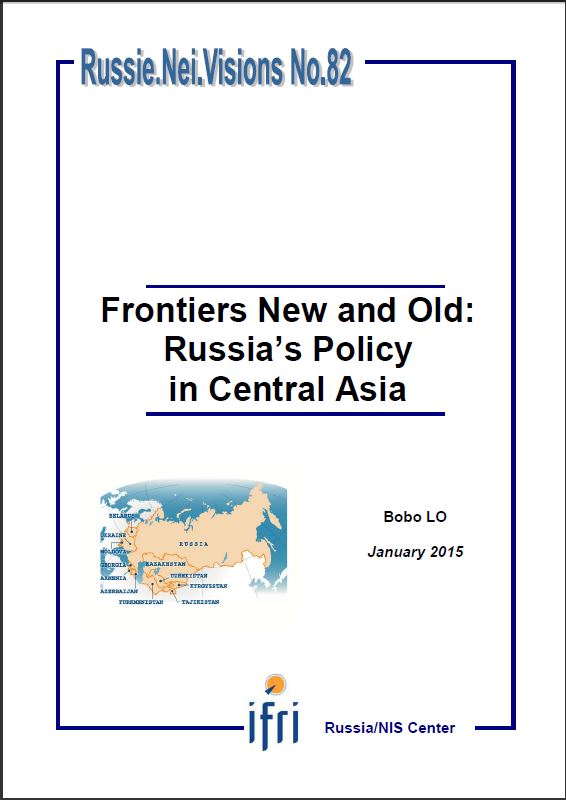Frontiers New and Old: Russia’s Policy in Central Asia

For much of the post-Soviet period, Central Asia has been a backwater of Russian foreign policy. But things are changing. Circumstances in and beyond the region are driving a more committed approach in Moscow.
Central Asia is critical to Putin’s aim of establishing Russia as the leading player in the Eurasian Heartland, and as an ‘independent’ center of global power alongside the United States and China. While there is no serious intention to revive the USSR, the Kremlin is keen to ensure a primary right of influence over the affairs of the ex-Soviet republics.
However, there are numerous obstacles in the way of such ambitions. Central Asian states such as Kazakhstan and Uzbekistan are no longer passive objects of Great Power diplomacy, but increasingly assertive actors. The United States will remain a key player in the region, even after the withdrawal of NATO combat troops from Afghanistan. And China is translating its powerful economic influence into a broader strategic presence. Despite the fanfare surrounding the Eurasian Union, Moscow’s position is weakening. Its capacity to dictate to others is significantly reduced, competition is greater, and the threats to Russian security are proliferating. Moscow faces a hard struggle if it is to avoid a sharp decline of its influence in Central Asia.
Download the full analysis
This page contains only a summary of our work. If you would like to have access to all the information from our research on the subject, you can download the full version in PDF format.
Frontiers New and Old: Russia’s Policy in Central Asia
Related centers and programs
Discover our other research centers and programsFind out more
Discover all our analysesRussia, the Palestinians and Gaza: Adjustments after October 7th
The Soviet Union (USSR), and subsequently the Russian Federation as its internationally recognized legal successor, has consistently sought to play a visible role in efforts to resolve the Israeli-Palestinian conflict.
Deathonomics: The Social, Political, and Economic Costs of War in Russia
The report attempts to outline and examine a truly new phenomenon in Russian society, dubbed “deathonomics”—the making of a mercenary army against the backdrop of the Kremlin’s war in Ukraine, eventually replacing both the Soviet (conscript) and early new Russian (contract) armies. It notes that, by the end of 2023, this trend had turned the military service into one of the highest-paying professions in the country, something not seen in Russia on such a scale since the late 17th century.
Russia's Asia Strategy: Bolstering the Eagle's Eastern Wing
Among Russia’s strategic priorities, Asia traditionally played a secondary role compared to the West. In the mid-1990s, then Foreign Minister Yevgeny Primakov initiated a rapprochement with China and India. Then, in 2014, deteriorating relations between Russia and the West prompted Moscow to begin its “great pivot to the East”.
Kazakhstan After the Double Shock of 2022: Political, Economic and Military Consequences
The year 2022 represented a dual shock for Kazakhstan. In January, the country faced its most severe political crisis since independence, followed in February by Russia’s full-scale invasion of Ukraine, which cast uncertainty over the borders of post-Soviet states. These consecutive crises profoundly shaped Kazakhstan’s domestic and foreign policy.













